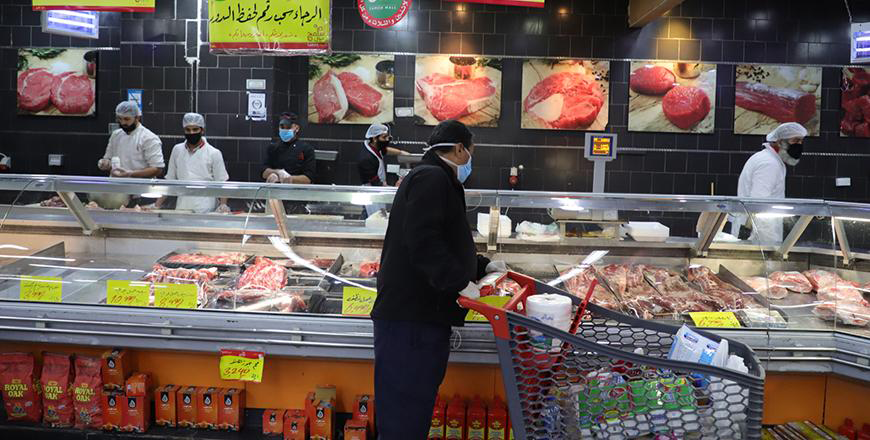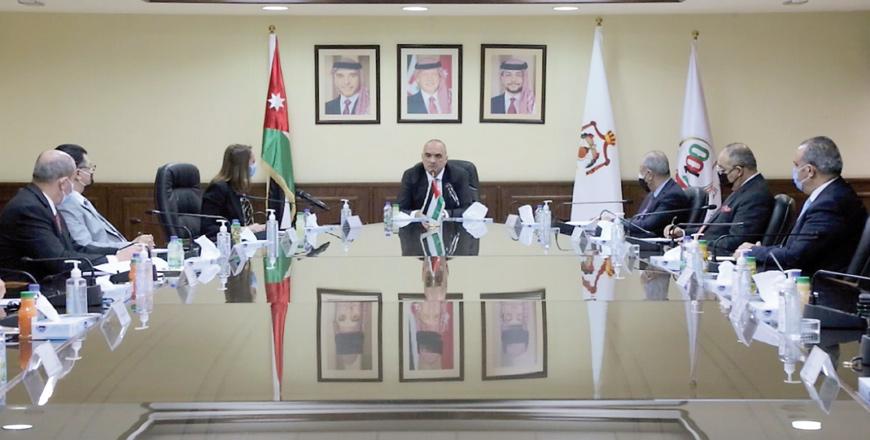You are here
Concerns rise over 6% price hike in ‘special formula’, parents struggle as monthly budgets exceed JD30
By Rayya Al Muheisen - Dec 07,2023 - Last updated at Dec 07,2023
AMMAN — The 6 per cent increase in prices for “special formula” types since the beginning of 2023 is causing concern among parents, who claim that the monthly budget for formula now exceeds JD30.
In a parliamentary oversight session held on Wednesday, Nizar Mhedat, the president of the Food and Drug Administration (FDA), shed light on the decision-making process behind formula pricing.
Mhedat emphasised that pricing decisions are carefully deliberated by specialised technical committees within the FDA.
He asserted that the prices of infant formula in Jordan are comparatively lower than those observed in neighbouring countries, underscoring that these pricing decisions are crucially supported by the administration.
Mhedat clarified that the recent 6 per cent increase particularly targeted a unique formula composition that witnessed an increase in demand due to its perceived “lower” prices compared with regular formula.
However, the Jordanian Society for Consumer Protection, represented by its secretary-general, Hussein Omoosh, urged authorities to find alternatives for infant formula that saw an increase in price.
“FDA is urged to explore alternatives in the market, taking into consideration the income variation among Jordanian consumers,” Omoosh told The Jordan Times.
Omoosh underscored the importance of finding solutions that accommodate the financial constraints of families, especially given that many infants rely on these specific formula compositions.
Mhedat highlighted that the recent 6 per cent increase was fueled by the escalating demand for a “special formula composition”. This particular composition is often consumed by infants grappling with challenges related to digestion or milk absorption. Mhedat also drew attention to the fact that, despite the increase, the prices of infant formula in Jordan remain considerably lower compared with regional counterparts.
Mhedat said that the cost of the JD5 formula in Jordan is equivalent to approximately JD12 in neighbouring countries.
“The call for the FDA to consider alternatives that cater to the varying income levels of Jordanian consumers reflects an ongoing dialogue about the accessibility and affordability of vital infant care products in the country,” Shatha Shehab, a mother of three children told The Jordan Times.
Shehab expressed concern about the increasing cost of formula, stating that it puts a strain on her family’s budget.
“FDA is urged to explore affordable alternatives that meet the nutritional needs of all children,” Shehab added.
Hassan Shehadeh, a father of a newborn, shared his worries about the recent price hike. He called for transparency in pricing decisions and urged authorities to prioritise the well-being of infants by considering the financial challenges faced by families.
“Parents need accessible options for families with varying incomes,” Shehadeh added.
Shehadeh claims that the increase in demand for “special formula” might be triggered by pediatricians who “might be taking a commission of these special formulas”.
“My monthly formula budget exceeds JD30,” Shehadeh added.
Shehadeh expressed concern about how would an employee with a minimum wage of JD260 buy formula for their newborn.
Related Articles
AMMAN — Advocates of the “Support Local” campaign are expressing concerns over a noticeable increase in prices for locally manufacture
A smartphone app that rids you of acne. Another that monitors your heart rate 24-7. One that detects skin cancer by looking at your birthmarks. If they sound too good to be true, they maybe.
AMMAN — Prime Minister and Minister of Defence Bisher Al Khasawneh on Monday chaired a meeting at the Ministry of Industry, Trade and Supply
















